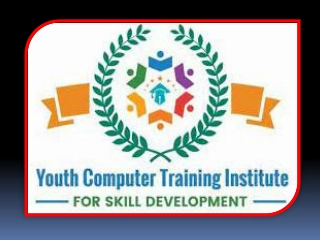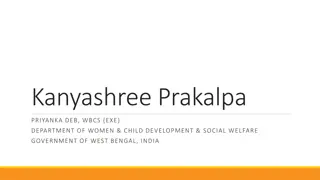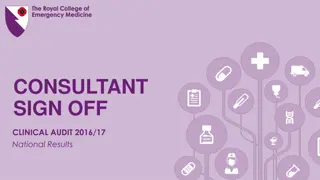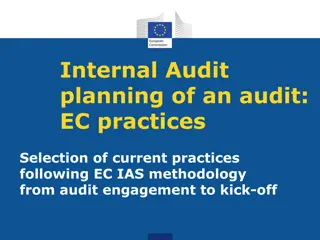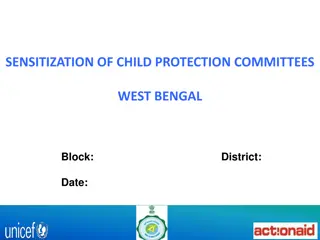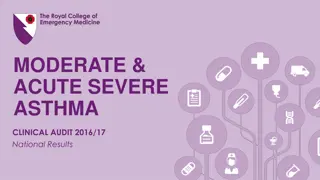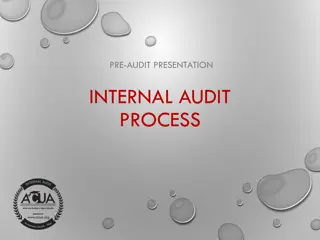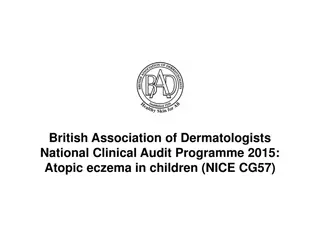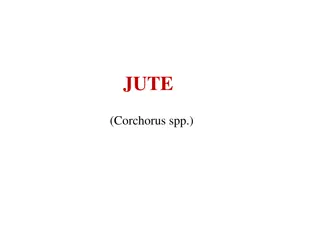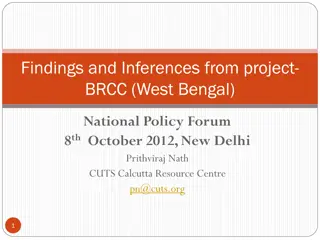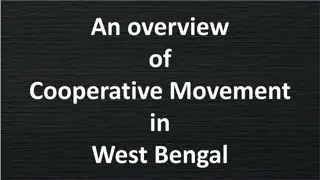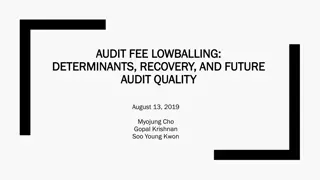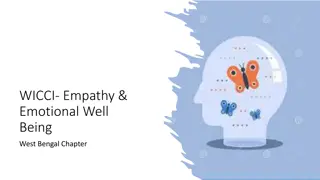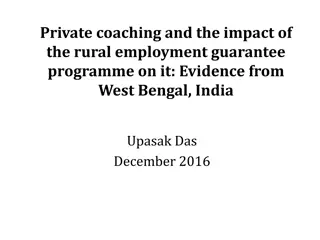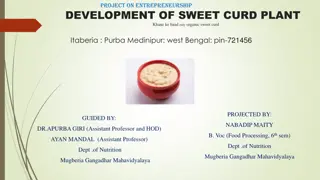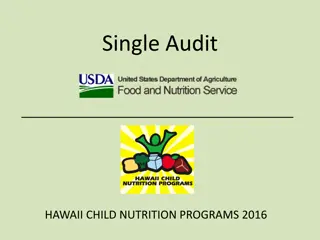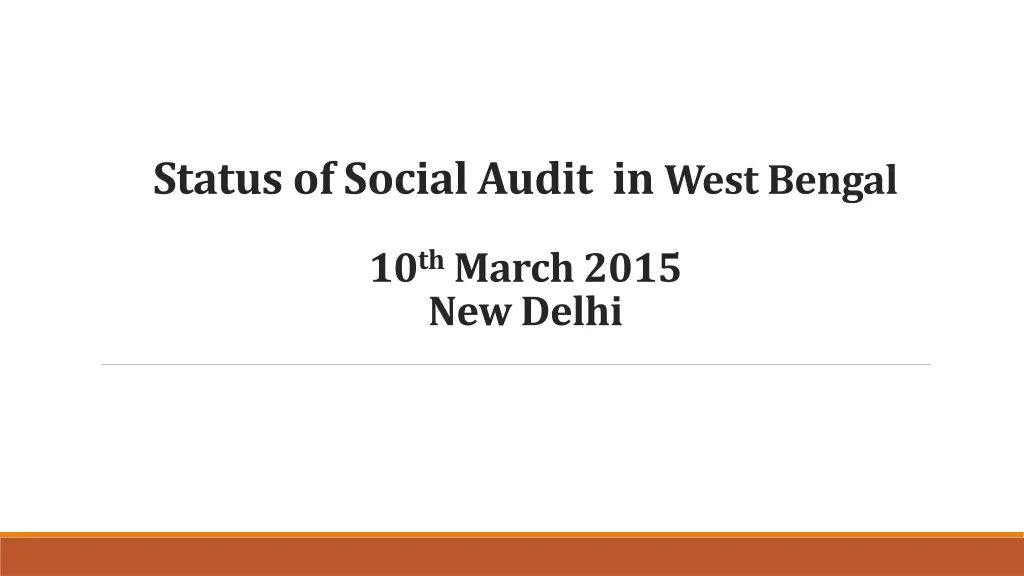
Social Audit Unit and Volunteers in West Bengal: Overview and Independence
Discover the organizational structure of the Social Audit Unit in West Bengal, including details on human resources, volunteer selection, and institutional arrangements. Learn about the independence of the unit and its key roles in ensuring transparency and accountability in social development programs.
Download Presentation

Please find below an Image/Link to download the presentation.
The content on the website is provided AS IS for your information and personal use only. It may not be sold, licensed, or shared on other websites without obtaining consent from the author. If you encounter any issues during the download, it is possible that the publisher has removed the file from their server.
You are allowed to download the files provided on this website for personal or commercial use, subject to the condition that they are used lawfully. All files are the property of their respective owners.
The content on the website is provided AS IS for your information and personal use only. It may not be sold, licensed, or shared on other websites without obtaining consent from the author.
E N D
Presentation Transcript
Status of Social Audit in West Bengal 10thMarch 2015 New Delhi
Social audit unit: Institutional arrangements Panchayats & Rural Development Department (P&RDD) West Bengal State Rural Development Agency (WBSRDA) Independent Social Audit Unit (SAU)
Social audit unit: human resources- State level The Director of Social Audit Identified State Social Development Consultant Engaged Selection process initiated 4 Social Audit Experts 4 Social Audit Resource Persons Selection process initiated
Social audit unit: human resources- District level Identified O M B U D S M A N ADM in Charge All outside the District MGNREGA Cell District Nodal Officer for Social Audit Entrusted Selection process initiated 124 Social Audit Resource Persons
Social Audit Volunteers (SAV) Most of the blocks already have selected the social audit volunteers Unemployed / retired persons preferably having Secondary School level background Mostly from the wage seeker households Must not be resident of the concerned GP Must not have any direct relation with any of the implementing agencies In a team of 5, at least 3 should be women volunteers (the team is now being extended to accooomdate other programs) 25 % representation from the SC/ ST households Block level Selection Committee notified (Block Programme Officer/Jt. Block Programme Officer, BSAC/ a nominated official in case of the BSAC is not available, PDO/PAAO, any other official nominated by the concerned BDO)
Independence of the SAU Independent Society (WBSRDA) governing the SAU Director, SAU reporting directly to the Principal Secretary District SAUs separated from the MGNEGA Cells in the districts ADM, SA reporting directly to the Director, SAU Separate Office for the SAU at the State and the Districts (under process) Separate Bank Account for the SAU Direct placement of fund District SAUs directly funded by the State SAU Directorate
Programs brought under the net MAHATMA GANGHI NATIONAL RURAL EMPLOYMENT GUARANTEE ACT (MGNREGA INDIRA AWAAS YOJANA (IAY) NATIONAL SOCIAL ASSISTANCE PROGRAMME (NSAP) SWACHH BHARAT MISSION (GRAMIN) (SBM-G) BACKWARD REGION GRANT FUND (BRGF)
Capacity building of the core staff Since most of the core staff are from the existing DSACs and BSACs, they are already trained and performing In the new set up a three-week field training planned in May 2015 In course of the training an entire district (Uttar Dinajpur) is to be covered NIRD is to support, a CSO (PACS) to be actively associated Basic training by NIRD Community Mobilisation by PACS Overall coordination (notification of public hearing, sending observers etc.) by the district administration One round of SA in the entire district in course of the training
Training of Volunteers Social Audit (VSAs) 3/5 days initial training and 2-days refresher training Residential training at the Extension Training Centers / District Training Centers Training module being redesigned with support from PACs 5 days field verification, 3 days for document verification, 1 day for Jana Sunani at Gram Sansad and 1 day for Jana Sunani at Gram sabha for all the schemes under MGNREGA, and other other development programmes including IAY, NSAP, BRGF, SBM etc.
Five Fundamentals of Social Audit i. Social audit by stakeholders from outside the village ii. Training of stakeholders in reading of records iii. Furnishing the copy of all records (rnusters/rn-books/pay orders) to the stakeholder youth iv.100% check of all payments and all work-sites and v. Preparation of report and reading out in the Gram Sabha

